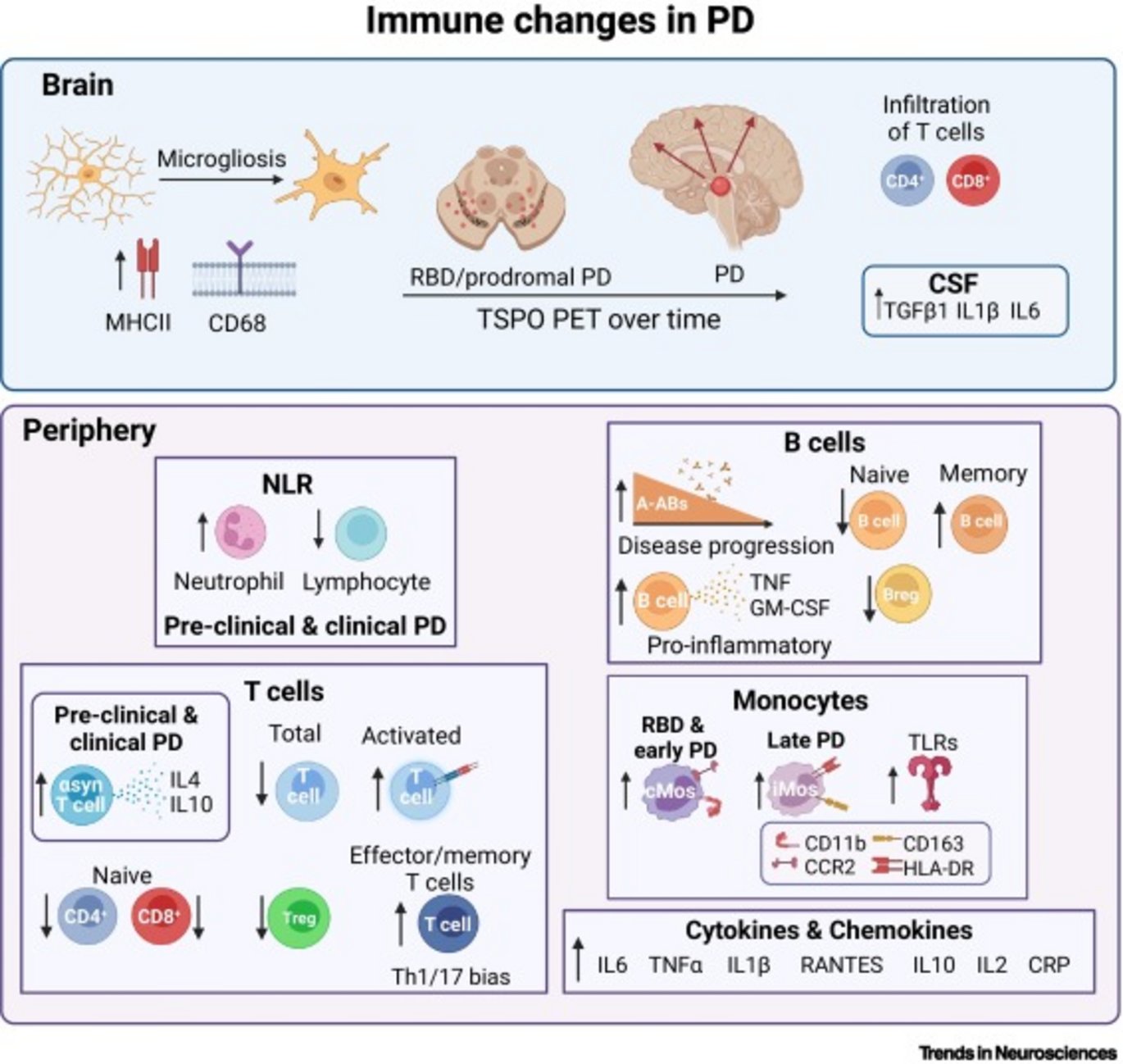A new review uncovers the connection between the immune system and PD
New insights into the potential role of the immune system in the onset and progression of Parkinson’s disease are opening the door to further exploration of sex-related differences.



In the last two decades, the relevance of immune cells in neurodegenerative disease has become increasingly evident. Immune cells, particularly microglia in the brain and peripheral immune cells are involved in processes related to inflammation, protein clearance and the potential for both neuroprotection and neurodegeneration.
Given that chronic inflammation is a common feature in neurodegenerative diseases like Parkinson’s disease, understanding the involvement of immune cells has become a central focus for research.
In this review, Marina Romero-Ramos’ lab discusses the data supporting the active role of the immune system, particularly peripheral immune cells, in the neurodegenerative process in individuals with Parkinson's disease.
The article reviews data related to changes in innate and adaptive immunity in the disease and how these changes are related to events in the brain and symptomatology. Specifically, the study emphasizes that immune cells, including microglia in the central nervous system and peripheral immune cells, respond to early neuronal changes and the presence of alpha-synuclein pathology, a hallmark of PD.
Furthermore, the authors discuss factors influencing this immune response, particularly in terms of disease subtypes, stages and sex.
It is worth noting that the risk of Parkinson’s disease is higher in males, but the exact differences related to sex remain unknown. Disease progression and presentation also vary between sexes, with females experiencing slower progression but more dyskinesias – involuntary, repetitive movements or muscle contractions that can occur in various parts of the body.
The reason for these differences is not fully understood, but hormones and disparities in the immune system may play a role. The researchers state, that recognizing these sex differences is essential for future PD research and treatment development.
Group Leader Marina Romero-Ramos states:
"Despite the acceptance in the field that neuroinflammation is a relevant process in Parkinson's disease, not all researchers in the area are aware that the immune response is systemic, and that there seems to be a cross-talk between the brain and periphery. I hope the review brings more awareness about this and ignites new research in the field."
- The review was published in Trends of Neuroscience in August 2023
- Read the full article
